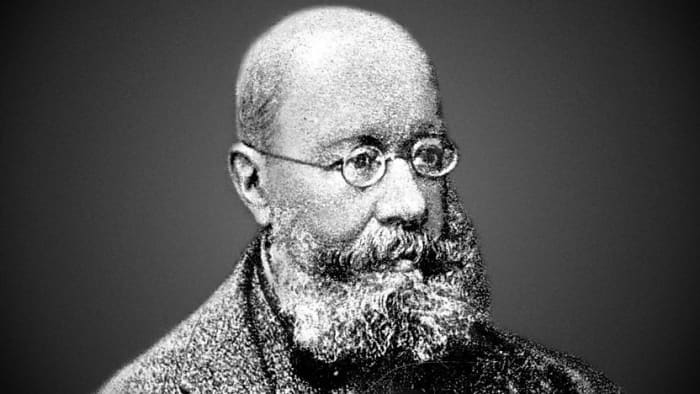Walt Whitman remains one of the most influential figures in American poetry. His work broke conventions, celebrated democracy, and embraced the human body and soul in ways that were revolutionary for the mid-19th century. Poems from Leaves of Grass, his most famous collection, shocked some readers and inspired others. Critics often responded with strong opinions about his style, subject matter, and approach to poetry. Examining these reactions reveals how Whitman’s work challenged the literary norms of his time and shaped modern American poetry.
Early Reactions to Whitman’s Poetry
Initial Publication and Controversy
When Leaves of Grass was first published in 1855, it attracted immediate attention for its unconventional form. Whitman discarded rhyme and meter, favoring free verse, which many critics found disorganized. The frank exploration of sexuality, the human body, and democratic ideals also raised eyebrows. Some reviewers dismissed his work as immoral or unrefined. Despite criticism, Whitman’s unique voice resonated with certain readers who appreciated the raw honesty and boldness of his poetry.
Praise from Progressive Circles
While some critics were outraged, others recognized Whitman’s genius. Writers and thinkers who valued innovation praised his ability to capture the American spirit. They admired his celebration of individuality, equality, and the human experience. His work was seen as a literary declaration of freedom, reflecting the democratic values that were central to American identity. These supporters emphasized that Whitman’s poetry offered a fresh perspective, breaking from European literary traditions.
Mid-Career Critiques and Acceptance
Civil War Poems and Public Recognition
During and after the Civil War, Walt Whitman’s work began to gain wider recognition. His poems about soldiers, grief, and national unity earned him respect for their emotional depth. Critics began to acknowledge his ability to convey the human cost of war while celebrating resilience and patriotism. Whitman’s role as a nurse during the war further strengthened his connection with the American public. While controversy over his erotic imagery persisted, many began to appreciate the humanity and honesty in his verse.
Debate Over Style and Form
Despite growing recognition, debates over Whitman’s style continued. Traditionalists criticized his lack of structure and disregard for classical poetic conventions. They argued that free verse lacked discipline and clarity. Meanwhile, progressive critics and emerging modernist writers saw Whitman as a pioneer. His approach influenced later poets who valued experimentation and personal expression. These contrasting reactions highlight the tension between tradition and innovation in literary criticism during Whitman’s lifetime.
Late-Career Evaluations
Recognition of Literary Influence
By the late 19th century, Walt Whitman had established himself as a central figure in American literature. Critics began to recognize the depth of his vision and his contributions to national identity. His explorations of democracy, nature, and individuality were celebrated for their philosophical and spiritual significance. Although some critics never fully accepted his erotic themes, many acknowledged that his poetry had reshaped the possibilities of poetic expression.
Enduring Controversies
Even as Whitman gained acclaim, controversy persisted. Certain religious and conservative commentators continued to view his work as morally questionable. Others criticized him for what they considered excessive self-promotion or lack of refinement. These debates reflect ongoing cultural tensions regarding sexuality, democracy, and artistic freedom. Whitman’s poetry remained a site of discussion, demonstrating the provocative nature of his work.
Critical Perspectives on Key Works
Leaves of Grass
Leaves of Grass is central to understanding critical reactions. The collection’s focus on the body, the soul, and the American experience was groundbreaking. Critics noted the democratic tone and celebration of ordinary life. However, some found the frank discussions of sexuality challenging or offensive. Supporters praised the collection for its originality and inclusivity, seeing Whitman as a voice for all Americans.
Song of Myself
This long poem from Leaves of Grass exemplifies Whitman’s radical style. Critics debated its lack of formal structure, but many recognized the profound philosophical and emotional insight within the text. Song of Myself invites readers into a personal and communal exploration of identity, nature, and society. The poem’s influence is evident in the acceptance of free verse and experimental poetry in the 20th century.
Drum-Taps
Written during the Civil War, Drum-Taps demonstrates Whitman’s ability to combine patriotism with human empathy. Critics appreciated the emotional resonance of poems like “When Lilacs Last in the Dooryard Bloom’d.” This work marked a turning point in Whitman’s reception, as more readers recognized the sincerity and artistry behind his verse.
Modern Criticism and Legacy
Influence on American Literature
Modern critics often celebrate Walt Whitman as the father of free verse in America. His approach influenced poets such as Allen Ginsberg and Langston Hughes. Scholars highlight his contribution to national identity, spiritual exploration, and literary innovation. Whitman’s work continues to inspire discussions about the relationship between personal expression and societal values.
Contemporary Debates
Today, debates around Whitman focus less on morality and more on interpretation. Critics analyze his exploration of gender, sexuality, and democracy. Some scholars emphasize his visionary style, while others examine the limitations of his perspective. These discussions reflect the continued relevance of his work and its capacity to provoke thought and reflection.
Conclusion
Walt Whitman’s poetry has elicited a wide range of critical responses. From initial shock and disapproval to praise for his innovation and emotional depth, reactions to his work reveal the evolving nature of literary criticism. While some condemned his frankness, others celebrated his vision, democratic ideals, and unique poetic voice. Works like Leaves of Grass, Song of Myself, and Drum-Taps continue to influence readers and writers alike. Criticism of Whitman’s poetry underscores the challenges of breaking literary conventions and the enduring power of a voice that speaks to both individuality and the collective human experience. By examining these responses, we see how Walt Whitman reshaped American literature and remains a central figure in the study of poetry.



